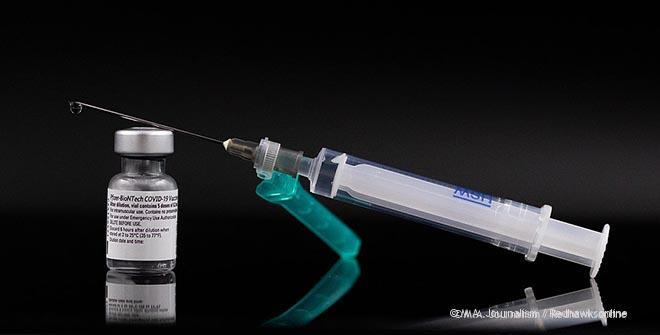Our biggest hope is to get vaccinated
As the COVID-19 vaccine has begun its distribution process, speculations about the vaccine have risen from millions of Americans. There are many reasons why people oppose vaccines: the belief that vaccines do not work, mistrust of science or the government, or the belief that they can cause autism (however, the CDC has confirmed that vaccine ingredients don’t cause autism). Though the timeframe for creating and testing this vaccine was short, it has been confirmed as safe and 95% effective.
From data taken by the CDC on January 21, about 17.5 million people have received the first dose of the COVID vaccine. However, thousands of people also received it back in the fall of 2020 during its testing phase.
“So far, we haven’t heard [of any side effects] and this has been studied since the fall,” said Heidi Streed, Minnehaha’s upper school nurse. “By now, we should have heard something since it’s usually the first four to six months that you’re hearing about side effects, and we’re not hearing that.”
The opposition of vaccines can be very dangerous and may drag out the pandemic, at least for the US. The measles (a potentially deadly disease) experienced a resurgence due to parents refusing to vaccinate their children. Who’s to say the same won’t happen with COVID? Luckily, once enough people become vaccinated, the virus will eventually slow down.
“Around 60 percent of the population has to get vaccinated for us to reach herd immunity, which is really impressive,” said Streed.
The vaccine will enormously help to end the coronavirus from spreading. However, if there are still millions who will not get vaccinated, then this virus may be around for longer than we’d like. It’s safe to say that almost everyone would like to have a sense of normalcy again. We’d like to go to concerts, restaurants, or even just the grocery store without having to distance ourselves. The vaccine is the biggest hope we have right now to return to that lifestyle.

